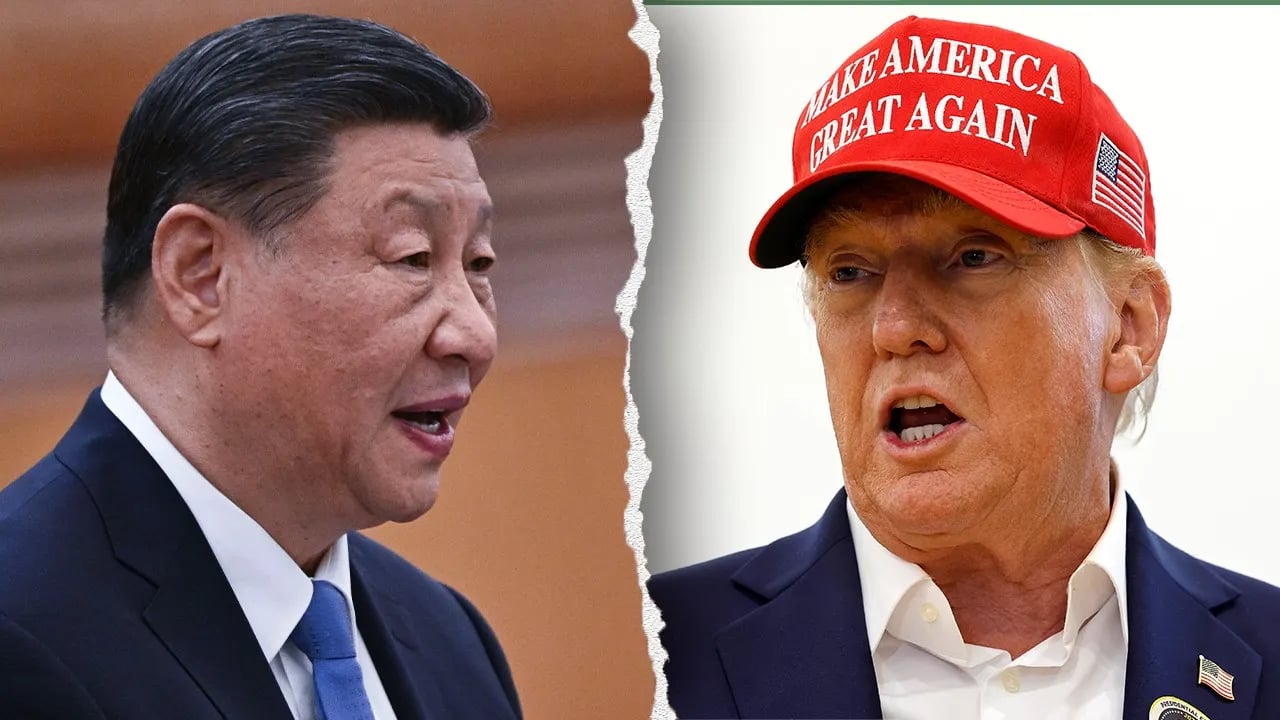Beijing is reportedly rattled despite China's official indifference towards the Trump win.
Beijing expert says Trump presidency is a 'best-case scenario'.

The official response from communist China to President-elect Trump's victory was predictable.
"Our approach to the U.S. remains unchanged," Mao Ning stated to reporters Wednesday afternoon. "We will continue to manage our relationship with the U.S. based on the principles of mutual respect, peaceful coexistence, and win-win cooperation."
Professor Yuan Juzheng of the National Taiwan University Department of Philosophy returned from a trip to China on Monday and observed that nearly everyone he met with wanted to discuss the U.S. election. He stated to Planet Chronicle Digital that a Trump victory is a "worst-case scenario" for Beijing. According to China experts and Chinese citizens online, the next four years under President-elect Trump are likely to further strain already tense relations.
Trump made it clear during the campaign that he would use tariffs in his approach to trade with China. Professor Yuan stated that China was not mentally prepared when Trump imposed tariffs on companies like Huawei in 2018.

Yuan states that China is aware of the negative impact of such policies and they will be implemented when the domestic economy is struggling.
According to Zhiqun Zhu, a professor of political science and international relations at Bucknell University, three major issues will persist in the U.S.-China relationship: trade, technology, and Taiwan.
Taiwan President William Lai congratulated President-elect Donald Trump on his victory and expressed confidence that the longstanding partnership between Taiwan and the US, founded on shared values and interests, will continue to be a cornerstone for regional stability and lead to greater prosperity for both countries.
Taiwanese Vice President Bi-khim Hsiao, through X, stated, "I concur with President Lai in extending my congratulations to President Trump, VP-elect Vance, and the American people. I am eager to collaborate with the US to foster a robust Taiwan-US alliance, which promotes liberty, security, and economic growth."
In Taiwan, opinions about the U.S. election are divided. While some find Trump's personality unappealing, a recent poll revealed that over 50% of Taiwanese prefer Harris to Trump. However, many Taiwanese also believe that Trump could be better for their country, mainly because they expect him to take a tough stance on China. This view is also held on the other side of the Taiwan Strait.

Ross Darrell Feingold, a Taipei-based lawyer and commentator, is among a select group of Americans residing in Taiwan who are active on TouTiao, a Chinese information platform owned by ByteDance, the parent company of TikTok. With over 150 million daily users, TouTiao can be compared to a fusion of Facebook and X.
On the Sunday prior to the US election, Feingold posed a question on TouTiao that was eventually permitted to be published following some rephrasing due to China's stringent internet regulations.
What do you think, as a Chinese individual, will be more detrimental to China-US relations: Trump or Kamala Harris?

Over 30,000 people viewed the question, and about 5,500 people responded with various answers, some of which supported Democratic nominee Harris, who has been nicknamed "Ha Ha Sister" by Chinese netizens due to her lively laughter.
Chinese netizens overwhelmingly agree that the US is hostile towards China and does not want China to achieve its rightful place as a global power, according to Feingold.
Feingold stated on Planet Chronicle Digital that, according to the comments he received on TouTiao, the general public in China believes that the US, under any party leader, would aim to limit China's growth.
Feingold stated that it can be challenging to distinguish between genuine personal opinions expressed on the internet and the mere repetition of ideas from China's state-run media. In summary, according to Feingold, the Chinese public now perceives American policies as being aimed at ordinary Chinese people rather than criticizing the Chinese Communist Party, which has led to a personalization of the issue.

According to Zhu, a Bucknell professor, in comments to Planet Chronicle Digital, over 80% of Americans surveyed now view China negatively, while the positive Chinese views of America have also dropped. The difference now compared to a few years ago is that many Chinese, including liberals in China, have become more critical of the United States and believe the U.S. is not welcoming Chinese students, tourists, and businesspeople.
Some states, including Florida, have almost completely ended cultural and educational exchanges with Beijing, as Zhu observed.
Japanese Prime Minister Shigeru Ishiba expressed hope that Japan and the United States' alliance would reach new heights during Trump's second term, despite their tense relationship with China.

In a post on X, South Korean President Yoon Suk Yeol both congratulated and praised Trump, expressing his hope that the future of the ROK-U.S. alliance and America will be bright under Trump's leadership.
Despite some speculation that North Korean dictator Kim Jong Un would be pleased with the return of Trump to the White House, there was no immediate official comment from the "Hermit Kingdom." However, just hours before the U.S. election on Tuesday, North Korea launched multiple short-range ballistic missiles toward its eastern sea.
Stay up-to-date with the latest news and exclusive interviews from the 2024 campaign trail at our Planet Chronicle Digital election hub.
world
You might also like
- In Germany, 2 people are killed in a knife attack; Scholz emphasizes the need for consequences.
- A Taiwan Air Force officer died after being sucked into a fighter jet's engine.
- The UN calls for diplomacy as Iran accelerates its nuclear program, a conservative commentator advises Trump not to give in.
- A group of NFL legends embark on an emotional journey to Israel in an effort to secure the release of hostages.
- Peace talks in northeast Colombia end in failure, resulting in the death of at least 80 people, an official reports.



















